Laura Moe's Blog, page 2
March 6, 2020
Writing in Captivity
 I live in the Seattle area, a hot spot for the corona-virus.
I live in the Seattle area, a hot spot for the corona-virus.I'm writing a novel about a couple quarantined. (It's being written by my alter ego, a much younger, more attractive redhead who pens steamy romance. I'm not revealing any more.) Ironically, I'm on a self-imposed quarantine as the Seattle area is a hot spot for the corona-virus, aka COVID-19.
Part of the problem with COVID-19 is not its deadly stats. We still have a better chance of dying from flu or pneumonia that corona-virus. The issues are that we don't know how its spreads, there is no definitive treatment, and there's no vaccine.
Unlike my characters, I am free to come and go as I please. I just choose to stay at home to minimize exposure unless I need to go out. My kitchen is well stocked with food, cat food, tea, and wine. The cat and I are ready for the zombie or virus Apocalypse.
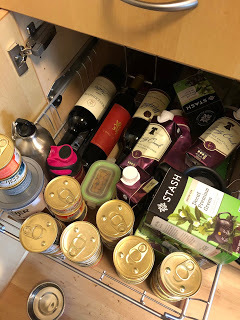
The word 'Quarantine' makes me envision cages and dining on food slid to me through a narrow window. But for an introvert and a writer, (often one and the same) it's not a bad deal. If I turn off the TV and its endless political, disease filled rhetoric, I may actually get a lot of work done. Several events for which I was supposed to attend next week are canceled. I'm caught up on laundry. If I don't leave the house, all I need to wear are pajamas. (I don't write naked. Yikes. I live in an earthquake zone.)
If schools close, the ones who will suffer most are parents and extroverts. Around here, where tech is a big employer, parents are already working from home. But their kids are still at school, so they can get work done. If the kids are home and locked inside, it will be like an extended snow day, If parents are wise, they will stock up on games, puzzles, books, and batteries along with food. Libraries and bookstores are still open, and some bookstores like Third Place Books, will ship to you with FREE shipping.
IF you go out to eat, please give your server a big tip. Chances are they aren't serving as many customers as usual, and they can't work from home.
Once I buy cat litter later today, I'll be good for the next couple of weeks.
Happy Writing and reading.
Published on March 06, 2020 15:30
March 5, 2020
Beginning with the Middle
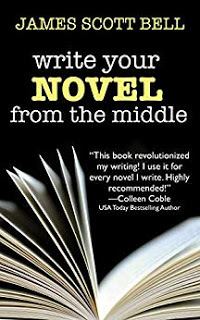
In the monthly writing workshop I conduct at a local library, the other night I talked about Write Your Novel From the Middle by James Scott Bell. The concept is described as “like popping open the hood and showing writers how they can be intentional about the story.”In this book, Bell claims that for a book to be effective, there must be a “mirror moment” where the main character can literally or figuratively look in the mirror and questions his/her beliefs about himself. It helps enormously to know the middle moment/mirror moment, because knowing this moment “illuminates the entire book” you’re trying to write. It’s the “deep tissue of the story,” (or the engine that drives it.) which many writers don’t discover until much later, sometimes after several drafts or even once the book is published.
When Breakfast with Neruda came out and reviewers had their say, they found things in my novel I hadn’t realized were there. . Bell also claims that a good novel [or memoir] is about one of three types of “death stakes”: the real death of the body, death of a career or passion, death of the inner self.
Once the writer discovers what type of death takes place, the transformation the protagonist needs to make to accept the death makes the story fall into place more easily. For example, In the middle of the classic film Casablanca, Ilsa comes to Rick after closing time, to explain about why she left him. He calls her a whore, making her cry and leave. As Rick buries his head in his hands, he realizes he’s a selfish man who all along keeps love at arm’s length. The rest of the film is about what his transformation, and his ultimate sacrifice in his love for Ilsa by letting her go.Exactly in the middle of The Hunger Games, Katniss accepts that she’s going die, and she prepares herself for death, but when she doesn’t die, she makes the realization she has survived in order to fight on.Interestingly, this concept of beginning with the middle works equally well if you’re a pantser like me or a plotter. Pantsers may write many drafts before brainstorming the mirror moment. But then, once you know it, your pantsing will have a focus and guide you to the end. A pantser could also start with a mirror moment “out of the blue,” and then write a whole novel around it. Plotters will love knowing the mirror moment because they usually have a structure to build around it, and planning scenes will be easier as a result.
In my workshop, I asked my participants to go into the library and find a book they had already read and find the mirror moment. In most cases, that moment was exactly in the center of each book. Books that have multiple main characters the position of the transformation will vary, but essentially it works best near the middle.
I looked inside my own book Breakfast With Neruda, and Michael’s transformation takes place at the end of chapter Eleven, smack in the middle of the book (no spoilers, in case you haven’t read it.) The upshot is, if you’re having trouble with your manuscript (In my current work-in-progress, the second half has issues) go to the middle and see if the main character has had a "transformational" moment, and define what type of "death stake" it is.
Happy Writing!
Published on March 05, 2020 13:07
In the monthly writing workshop I conduct at a local libr...

In the monthly writing workshop I conduct at a local library, the other night I talked about Write Your Novel From the Middle by James Scott Bell. The concept is described as “like popping open the hood and showing writers how they can be intentional about the story.”In this book, Bell claims that for a book to be effective, there must be a “mirror moment” where the main character can literally or figuratively look in the mirror and questions his/her beliefs about himself. It helps enormously to know the middle moment/mirror moment, because knowing this moment “illuminates the entire book” you’re trying to write. It’s the “deep tissue of the story,” (or the engine that drives it.) which many writers don’t discover until much later, sometimes after several drafts or even once the book is published.
When Breakfast with Neruda came out and reviewers had their say, they found things in my novel I hadn’t realized were there. . Bell also claims that a good novel [or memoir] is about one of three types of “death stakes”: the real death of the body, death of a career or passion, death of the inner self.
Once the writer discovers what type of death takes place, the transformation the protagonist needs to make to accept the death makes the story fall into place more easily. For example, In the middle of the classic film Casablanca, Ilsa comes to Rick after closing time, to explain about why she left him. He calls her a whore, making her cry and leave. As Rick buries his head in his hands, he realizes he’s a selfish man who all along keeps love at arm’s length. The rest of the film is about what his transformation, and his ultimate sacrifice in his love for Ilsa by letting her go.Exactly in the middle of The Hunger Games, Katniss accepts that she’s going die, and she prepares herself for death, but when she doesn’t die, she makes the realization she has survived in order to fight on.Interestingly, this concept of beginning with the middle works equally well if you’re a pantser like me or a plotter. Pantsers may write many drafts before brainstorming the mirror moment. But then, once you know it, your pantsing will have a focus and guide you to the end. A pantser could also start with a mirror moment “out of the blue,” and then write a whole novel around it. Plotters will love knowing the mirror moment because they usually have a structure to build around it, and planning scenes will be easier as a result.
In my workshop, I asked my participants to go into the library and find a book they had already read and find the mirror moment. In most cases, that moment was exactly in the center of each book. Books that have multiple main characters the position of the transformation will vary, but essentially it works best near the middle.
I looked inside my own book Breakfast With Neruda, and Michael’s transformation takes place at the end of chapter Eleven, smack in the middle of the book (no spoilers, in case you haven’t read it.) The upshot is, if you’re having trouble with your manuscript (In my current work-in-progress, the second half has issues) go to the middle and see if the main character has had a "transformational" moment, and define what type of "death stake" it is.
Happy Writing!
Published on March 05, 2020 13:07
September 8, 2019
Character Accuses Author of Bad Storytelling

My protagonist, Michael “Neruda” Flynn, is upset with me. He saunters in as I’m working on my next work in progress and pounds on my desk. “How badly did you tell my story in THE LANGUAGE OF THE SON?”
I look up. “What do you mean?”
He throws his hands in the air. “You sold a bunch of copies, but nobody is reviewing it!”.
“Oh. That.” I take a sip of tea. “Maybe people are afraid of hurting my feelings if they hated it.”
He scoffs. “You have no feelings! Writers are soulless creatures who devise more ways to torture poor, innocent characters like me.”
I squint at him. “Have you been reading my browsing history?”
He crosses his arms and slumps back in his chair. “No, but I survived all the knives and arrows you flung at me in a three-book series.”
“Yeah, sorry about that, but readers want you to suffer. Otherwise there’s no story.”
“But why must I suffer so much?”
I shrug. “You don't think I suffered too as I was writing your tale? All those endless revisions and scenes to make the story work!”
He points a finger at me. “Just you wait. I’ll write my own story and base a character on you. I’ll send her into a field of dragons and snakes, and believe me, it won’t be pretty.”
“I guess turnabout is fair play.” I take another taste of my tea and raise my fingers above my keyboard. “Now can I get back to my next novel?”
He glances at my screen. “That poor girl. What did she and her family ever do to you where you have to cause her so much grief?”
“They visited my imagination.”
If you’ve read THE LANGUAGE OF THE SON, Michael and I would appreciate an honest review.
Thank you!
Happy Reading!
Published on September 08, 2019 15:04
July 31, 2019
WIN a FREE copy of one of my books!

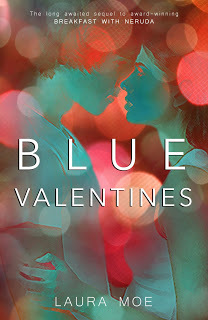
This month I am a guest blogger on the wonderful Janet Lee Cary's blog, Dreamwalks. here's the post, and stay until the end to enter to win a free book.
Happy Reading!
.
Published on July 31, 2019 19:07
July 28, 2019
My favorite two words are BOOK SALE

Who doesn't love a book sale? If you're a fan of my novel BREAKFAST WITH NERUDA, you can now read its sequel, BLUE VALENTINES, on kindle for a limited time at .99. (Or free if you have Prime. So what's it about?
On the verge of graduating high school, with no solid plans for his future, Michael has two options. He can either remain in Rooster, Ohio and attend a local college, or accept a scholarship to a summer workshop in Seattle, where he has a chance to meet his biological father. Will he make the right choice? While he struggles with his options, Michael discovers the ties that bind him to his girlfriend Shelly may be slowly unraveling...
Happy Reading!
Published on July 28, 2019 10:51
July 14, 2019
The Rest of the Story
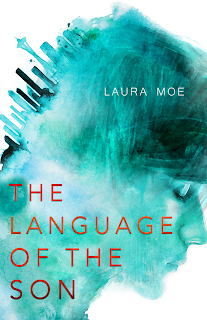
Earlier today I shared coffee with a writer friend whose first novel is coming out in October. “I feel like I have imposter syndrome,” she said. “It’s as if I’m leading someone else’s life.” It’s a familiar feeling many of my author friends and I share: a belief that we’re all frauds. Maybe it’s the nature of creating stories that causes writers to feel like imposters. If we write fiction, we’re writing something that isn’t true. It’s all in our heads.
Except when the book goes out in the world, the story perpetuates into someone else’s consciousness. In The Shadow of the Wind by Carlos Ruiz Zafon, protagonist Daniel Sempere is taken to the Cemetery of Forgotten Books by his bookseller father, who tells his young son, “Every book has a soul…The soul of the person who wrote it and of those who read it and lived and dreamed with it,” and later, he adds, “Every book you see here has been somebody’ best friend.”
Perhaps Kristen, my author friend, senses she no longer owns her story, or that she never owned it in the first place. Yes, she toiled over multiple drafts and comments from her critique partners. She bargained with her editor over its content. But the true soul of a book exists in those who read it.
Writing fiction is a vocation that doesn’t make sense. We spend months, sometimes years, listening to our imaginary friends tell their tales. We take their stories and translate them to pages for others to enjoy. It’s a daunting and impossible task.
Once the story is released, you’re open to criticism. Even if a book is well received, there’s always that devil on your shoulder poking his fork into you, whispering, you’re a fraud.
In order to promote the book, an author needs to talk about the work with strangers. What inspired the story? How much of this is true? How much of you is in the book? Why should I read it? What’s it about? Sometimes we don’t know the answers to these questions. No wonder writers feel like imposters.
Yet we’re grateful to those of you who take a chance and read/fall in love with our novels and characters.
The reasons we write are ineffable. Most of us don’t do it for the money. Writing is a compulsion, a romance with words, driven by a similar force that makes one person develop a passion for cars or math.
BREAKFAST WITH NERUDA and BLUE VALENTINES needed an audience. I just can’t tell you why.
The final installment in Michael and Shelly’s tale, THE LANGUAGE OF THE SON, is available now in paperback, or pre-sale in eBook August 1.
I'd like to send a shout out to my awesome cover designer for this book and BLUE VALENTINES, Ashley Nicole Conway. You can find her on Facebook at Covered by Nicole. Because she's also a writer, she limits the number of cover clients she takes on, but she 's worth the wait.
Happy Reading!
Published on July 14, 2019 20:59
July 6, 2019
When Your Imaginary Friends Take Control
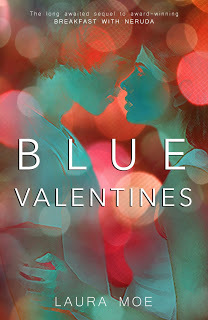
You may be wondering why I haven't posted in a couple of months. As you can see from the photo I've been busy writing the sequel to BREAKFAST WITH NERUDA. Since my publisher was not interested in this book, I'm opting to Independently publish it (and its sequel.)
This means I'm now a "hybrid author." Two of my critique partners are also hybrids, and they coaxed me to give it a go.
After weighing the pros and cons, I reluctantly decided to journey down the self publishing path.
Pros:
I choose my own cover designer and title, and have control over the book's content. I also manage the price points and decide when to put it on sale. Plus, any royalties come directly to me. In addition, I can update the book's content any time and own all the rights. No more sending out query after query to hear "not right for our list, we just published a similar title, we like the writing but didn't relate to the characters..." Yes, I could have continued to query, but I had two strikes against me:
One, while BREAKFAST WITH NERUDA is highly praised and was shortlisted for a major award, it didn't sell enough copies to set the world on fire. 'Writing is an art, publishing is a business' is a mantra we authors often hear at writer's conferences. You can craft beautiful sentences and well create developed characters in an engaging story, but if your book doesn't produce great sales figures in a short window of time, your next book is a harder sell.
Two, the characters aged up a year. YA characters tend to max at age eighteen, but the protagonist Michael is now nineteen. Technically, they are New Adult, which is a dying (Maybe already dead) category.
Perhaps the third strike is Contemporary YA is a super crowded market. My characters aren't diverse enough to compete with filling the much needed gaps in the YA canon. So, the odds were ever not in my favor to go traditional this time.
Cons:
I'm responsible for all the costs of cover design, formatting, editing, and advertising. In addition, I pay for all proofs and author copies and other marketing materials. I now have to pay attention to sales rankings, hone my subject categories, and fret over my pending obscurity.
Part of the reason BWN didn't sell is because I'm a terrible marketer. I want my clone to send out postcards and contact book bloggers to beg for reviews. There's a whole minefield of business practices indy writers must perform. By going rogue, I'm taking a huge risk because I don't have a clone, so it's all on me.
Having a big 5 publisher behind you gives you street cred in the trade. You're treated like a rock star at library and book conferences, and you make friends with other stars in the business. While it's waning somewhat, there's still a stigma against being "a self-published writer."
So why am I doing this?
Fans of BWN want to know what happens next with Michael and Shelly. I hadn't intended to write a series. My characters coerced me into it. I spent a lot of time with these people, and grew to love them.
Also, I'm not prone to do the logical, practical thing. But I believe in these stories.
I'm also a fan of irony. While indy writers are relegated to a lower position on the pecking order compared to traditionally published writers, the irony is, a large percentage of indys make more money than their counterparts. The ones who make money and get great reviews go through the same careful process of creating a book. The difference is, we own all the stakes.
The primary reason I'm indy publishing is I need these stories off my desk and out of my head so I can focus on my current (work in progress (WIP.) I'm 36,000 words into the next book (which will be a stand alone,) yet Michael and Shelly keep barking at me to get their story out there. These books are their fault.
The paperback of BLUE VALENTINES is out now, and the eBook is due out July 9, 2019.
The third and final book of the Michael/Shelly saga, THE LANGUAGE OF THE SON, will be coming in August.
Happy Writing.
Published on July 06, 2019 16:18
January 11, 2019
Snowflakes In a Blizzard

Unless you're named James Patterson, Stephen King, or Janet Evanovich, chances are nobody has heard of you or your books. Publishers place the majority of their eggs in high profile baskets. It's not personal; it's business. Big names means big book sales. Meanwhile, the rest of us struggle for an audience.
Bloggers such as Darrell Laurant understand the need to inform readers of great books that deserve more attention. "Each week we feature three books -- novels, non-fiction, poetry, short-story collections -- in individual posts that go out to over 3,000 blog followers, many of whom then share those posts on their own social media. Some of the authors we embrace are obviously in need of more exposure. In other cases, the inclusion of a book is simply an effort to get unique writing out to our blog followers.
"I'm doing this because I enjoy doing it, and because my own experience as a published author ("Inspiration Street," "The Kudzu Kid") has opened my eyes to the challenges facing today's writers. Beyond that, I am trying to expose potential readers to original work they might not learn about otherwise."
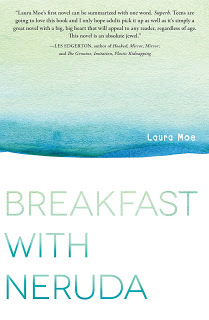
This week my novel, BREAKFAST WITH NERUDA, is featured on his site. I hope you enjoy reading his blog and find a few buried treasures there.
Learn more about Darrell, his books, and his page here.
Happy Reading and Writing.
Published on January 11, 2019 09:11
December 8, 2018
A community of Soloists
A few months ago I shared a book event with a writer I've "known" online for more than a year, but had never met in person. We met at a book event at Mother Foucault's Books in Portland, Oregon.
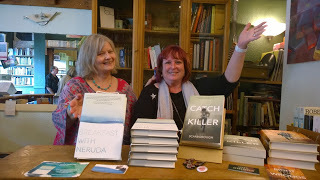
It turned out Sheryl Scarborough and I had more in common than just being YA writers with a ton of mutual writer friends. While my book is contemporary YA and Sheryl's is a YA mystery, the protagonists in both our recent books were searching for their missing fathers.
I love the odd confluence of bringing our similarly themed books books together. We writers tend to work alone, yet occasionally we convene and share our work. Within my critique group (there are four of us) we occasionally have a "mind melds" where a couple of us will use the same locations in our books. In a funny coincidence, two of my peers had characters nicknamed "Boo."
So while we are soloists, we writers are also part of a larger choir. We share similar dreams of getting our books published, making appearances, and perfecting our craft. Yet ultimately our goals are to engage readers and build an audience. So even though Sheryl and I had not met in person, we eased into a conversation as if we'd been friends for years. It reminded me of times I've heard musicians walk on stage and "jam, "producing extraordinary music without ever having met before.
In another odd coincidence Sheryl and I both had surgery on our right knees, so we're both learning how to walk again without pain..
Happy holidays.

It turned out Sheryl Scarborough and I had more in common than just being YA writers with a ton of mutual writer friends. While my book is contemporary YA and Sheryl's is a YA mystery, the protagonists in both our recent books were searching for their missing fathers.
I love the odd confluence of bringing our similarly themed books books together. We writers tend to work alone, yet occasionally we convene and share our work. Within my critique group (there are four of us) we occasionally have a "mind melds" where a couple of us will use the same locations in our books. In a funny coincidence, two of my peers had characters nicknamed "Boo."
So while we are soloists, we writers are also part of a larger choir. We share similar dreams of getting our books published, making appearances, and perfecting our craft. Yet ultimately our goals are to engage readers and build an audience. So even though Sheryl and I had not met in person, we eased into a conversation as if we'd been friends for years. It reminded me of times I've heard musicians walk on stage and "jam, "producing extraordinary music without ever having met before.
In another odd coincidence Sheryl and I both had surgery on our right knees, so we're both learning how to walk again without pain..
Happy holidays.
Published on December 08, 2018 12:05



